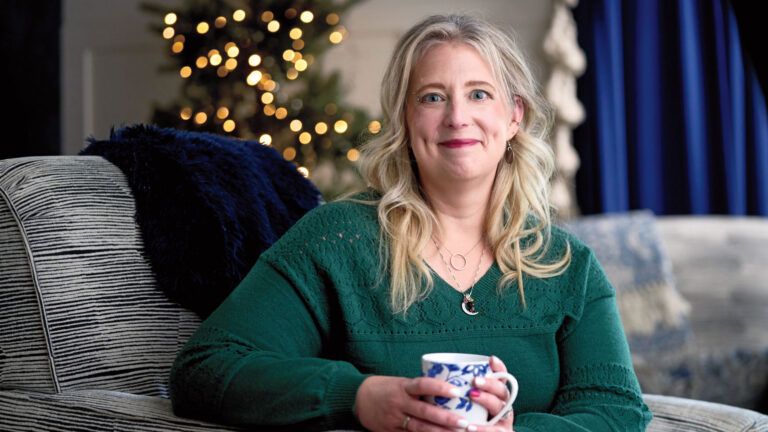I pressed my best suit and starched a white shirt. Held up each and every one of my ties, trying to decide which one looked the most professional. It was the night before my first day at my new job. Not just any job. A job at the White House. I was full of nervous energy.
When I tried to read, my mind kept wandering. I thought back to all of the experiences and the people who had helped me get to this point. College professors. Friends from graduate school. Mostly though, I thought about the people from my hometown. I thought about Madison Park.
I was raised by my grandparents—Mama and Daddy, as I called them—in Madison Park, a town founded by freed slaves on the edge of Montgomery, Alabama. In 1880, John Motley, Sr., my great-great-grandfather, joined a group of freedmen as they stood on the ground that would become Madison Park and pledged to build a community where people could thrive. Daddy built almost half of the black churches in Montgomery, including Union Chapel AME Zion Church in Madison Park.
Some kids had paper routes after school let out. I had a people route. Almost every day when I was growing up, I would go around the neighborhood and visit with each of the people who had made an investment in my life. Especially my tutors.
When I was in first grade, Mama got a letter from my teacher explaining that I was being demoted from the Rabbit reading group to the Turtle reading group. Even though she and Daddy didn’t have much formal education, Mama would have none of it. She immediately called my Aunt Shine. The next Sunday in church, Aunt Shine stood up and made a plea to the congregation.
“Brothers and sisters, we have a serious problem,” she said. “Eric Motley has been moved from the Rabbit to the Turtle reading section at his school. Eric needs to practice reading, and he doesn’t have many books at home. If you have any books you’ve finished reading, please drop them off at the Motleys’.” I was mortified. and yet that afternoon, reading material started arriving on the porch. Books, old magazines, volume “L” of the Encyclopaedia Britannica. Even some poetry.
That wasn’t enough for four retired teachers who lived in Madison Park: Aunt Shine, Aunt Prince Ella, Mrs. Carrie Madison Seay and Mrs. Frankie Lee Winston. They came by the house every afternoon, two by two, to tutor me. They didn’t stop at reading, either. They helped with math, science, history—you name it. Eventually, they expanded their efforts to all the kids in the neighborhood. For a few years, about 60 of us would gather at the church every afternoon for tutoring.
My Rabbit status was restored, and I excelled in school. But the efforts of my neighbors were far from over. They weren’t content for me just to be a Rabbit. They had their eyes on a bigger prize. College.
In my teen years, my afterschool routine changed. At 4 p.m., when I got off the bus, Mama would greet me with a cup of hot tea and cookies and we would chat about our day. Then I’d change into working clothes—worn khaki pants and a hand-me-down denim shirt—to do my chores.
Next was my favorite part of the afternoon: my people route. I’d say hello to the McCarters, who lived across the street. They had 10 kids, but Mrs. McCarter always set aside an extra slice of pie or scoop of ice cream for me. I’d holler at the other kids on my way through the neighborhood—Regina Gibbs, the Simon and Henderson boys—before visiting with my tutors.
Aunt Prince Ella would wait on me to walk with her to gather eggs from her chickens. If Mrs. Seay’s clothes were on the line outside, I’d take them down and help her fold them. Aunt Shine would talk to me about history and politics. Mrs. Bertha Winston became my speech coach. She would drive me to our church so I wouldn’t be distracted by the comings and goings in the neighborhood. We’d park under a big oak tree, and she would give me a list of words to recite. Mama and Daddy couldn’t afford many books, but Mrs. Winston taught me that if I memorized the passages that spoke to me the most, they would always be with me.
My tutors weren’t the only people on my route. I always had a steady supply of odd jobs to complete after school. When I was done visiting with my tutors, I would mow lawns, trim shrubs, pick blackberries and weed gardens. Anything for a few bucks.
My neighbors could have easily done the work themselves. They hired me to help build my college fund. I would have much preferred if they’d just given me the money. Mama and Daddy insisted that I earn every penny.
I worked along my people route until dinnertime. Dinner, like breakfast, was a full cooked meal. Usually Mama made okra, peas and some sort of delicious main course like meatloaf or pork chops. Before eating, Daddy would ask, “Eric, do you have a couple of lines you want to give us?” Then I’d stand at the end of the table and recite a few lines from a poet I loved, often someone Mrs. Winston had introduced me to. Over the years, I covered a wide range of poets, from Shakespeare to Langston Hughes. Then Daddy would pray over our meal, saying, “For these blessings, we give you thanks. And make us ever mindful of those who have not. Amen.” To this day, I still say this prayer before eating.
My favorite times with Daddy, though, were the Sunday mornings we spent on Little Joe Simon’s back porch. At eight o’clock, the men of Madison Park would congregate at Little Joe’s for a haircut before church. We would sit under the magnolia trees and drink coffee while catching up on what was happening. I loved when Little Joe cut my hair. More than that, I loved being a part of something, witnessing so many people come together. It was the most important stop on my Sunday people route.
The tutors, the neighbors, the odd jobs, everyone who came together on my behalf—they all helped get me to college. I received a full scholarship to Samford University, about 90 miles away from Madison Park. After graduating college, I went even further, all the way to Scotland, for graduate school in international relations.
Now I was headed for the White House, where I would serve as a special assistant to President George W. Bush. I closed the book I’d been trying to read and checked the clock. It was 10 p.m. Even with my clothes laid out and my briefcase packed, I couldn’t sleep. The phone rang. I checked the caller ID. Montgomery, Alabama. I picked up. It was Mrs. Bertha Winston.
“I hope I didn’t wake you, Eric,” she said. “I just couldn’t sleep. I wanted to tell you how proud we all are of you. Tomorrow, you go in there and work! When you go into that White House, remember you’re taking Madison Park with you.”
I thanked Mrs. Winston and hung up, feeling peace wash over me as I remembered that this job, this opportunity to work in a place of influence, was more than mine alone. Even though I was far from the family and friends who had shaped me, they would always be a part of everything I accomplished.
The next day, I walked into the White House with pride, wearing the red-and-blue striped tie that Daddy had worn to my high school graduation.
I worked in the White House for four years. I was ready for a new opportunity at that point, but a good friend unintentionally sowed doubts in my mind. “Don’t leave the White House!” he said. “If you do, you’ll no longer be Eric Motley from the White House!”
That was true, but I wondered how I’d given him the impression that my identity was only of value in relation to the White House. Wasn’t being Eric Motley from Madison Park good enough?
One of the odd jobs I did around Madison Park was picking blackberries. I was picking them one day when one of Mama’s friends, Miss Daisy, appeared. I chatted with her to be polite, just small talk about the weather and her health. She didn’t reciprocate.
“You mustn’t pay attention to me or to anyone when you’re working the work before you,” she said. “You have to be totally involved in what you’re doing and consumed with what’s before you.”
Her advice reminded me of a prayer I’d once delivered to a church in Montgomery: “Help us to know ourselves more fully and wholly; help us to never forget whence we have come.” God answered my prayer and reminded me where I came from. I listened to the advice of Miss Daisy over the advice of my good friend. I knew that the work before me no longer included my job at the White House. It was time to move on.
I’m now an executive vice president at the Aspen Institute, a nonprofit leadership think tank, and my management strategy comes from the wisdom of the people I grew up with. I seek to encourage rather than criticize, to build up rather than tear down. Every day I rise before the sun, as Mama taught me to do, and I remember that even though she and Daddy have passed, as have so many of my friends and mentors from home, I carry the spirit, principles and values of Madison Park with me.
For more inspiring stories, subscribe to Guideposts magazine.





